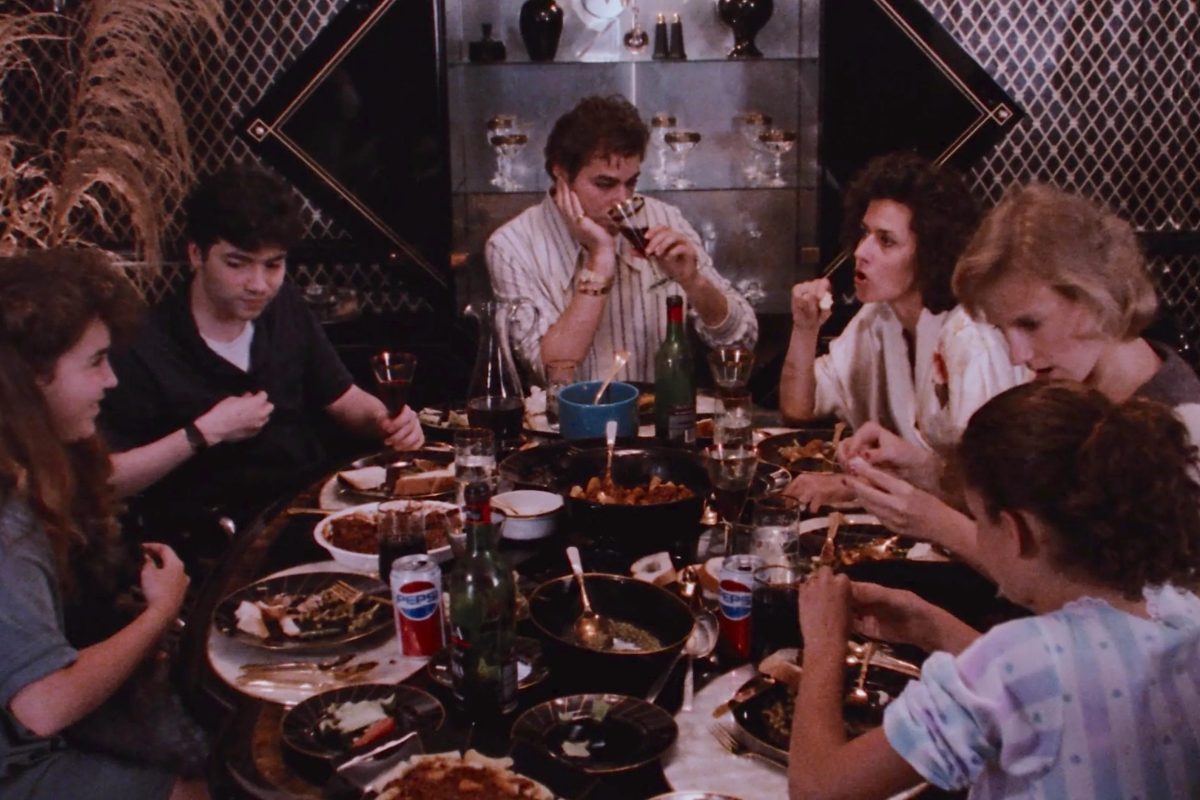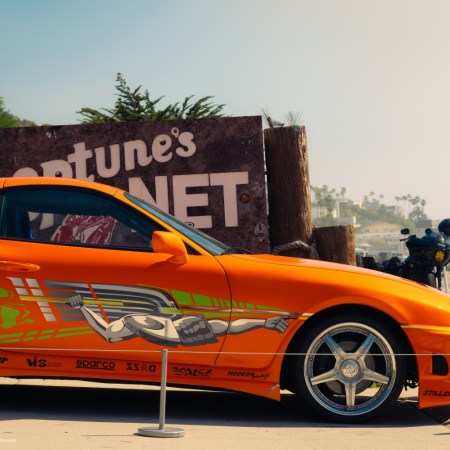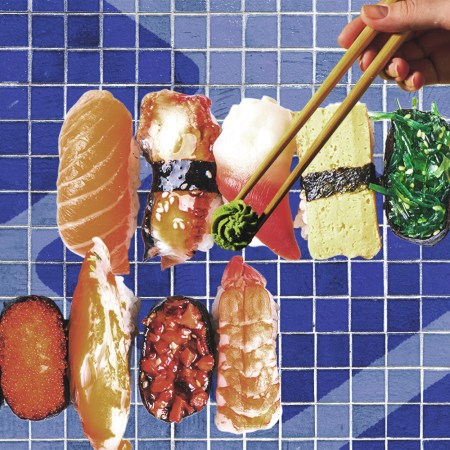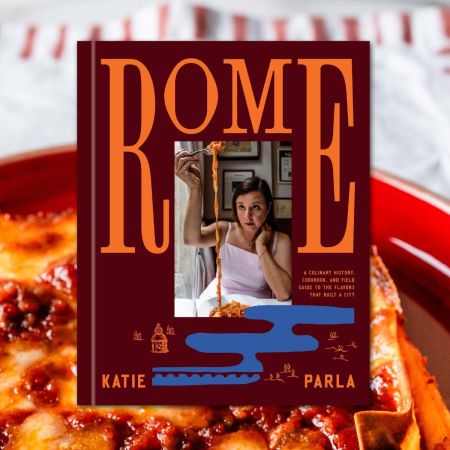The recent passings of Ray Liotta, Paul Sorvino and Tony Sirico — a trio of unforgettable faces from Goodfellas gone within two months — have launched a thousand rewatches of the legendary 1990 film. When I embarked on my own latest rewatch, I realized that not only is the movie a genre-and-career-defining masterpiece, it’s also an example of pre-Instagram, cinematic food porn, with many — most — of its famous scenes taking place at the dining table or in the kitchen. From epic prison-made feasts to cocaine-fueled family get-togethers and post-mob hit midnight meals from mom, there’s much to explore.
It adds yet another dimension of appreciation to a movie I had already long ranked as my favorite, one that resonates with me all the louder considering my eventual career path. (For the record, that’s as a food journalist, not a mobster.)
When you watch Goodfellas specifically for the food, its constant background static becomes one of its strongest and most central themes. Yes, the movie might have the best score in cinema history, featured groundbreaking technical work from Martin Scorsese and created a cottage industry of ripoffs and imitations, but it’s also one of the most definitive food films of all time.
Taking into account plot importance, food porn-worthiness, and the overall quality of the scene as well as the eats, here are the best food scenes in Goodfellas.
12. “It was when I first met Jimmy Conway.”
A series of food-filled scenes are formative in the development of young Henry as he meets the man he’s bound to follow for life, Paul Cicero, and the man he wants to be, Jimmy “The Gent” Conway. First, we’re outdoors for a cookout, with large circular rings of Italian sausage charring over fire beside a cast iron skillet filled with peppers and onions. Guys are grabbing hunks of bread and loading them up, and Paulie and his crew are sitting around, each guy with a sausage sandwich in one hand, beer in another.
As everyone scarfs down, Liotta provides us with a voiceover:
“Hundreds of guys depended on Paulie, and he got a piece of everything they made. It was tribute, just like in the old country… All they got from Paulie was protection from other guys looking to rip them off. And that’s what it’s all about. That’s what the FBI could never understand. What Paulie and the organization does is offer protection for people who can’t go to the cops. That’s it, that’s all it is.”
As we hear this piece of demystifying insight, we get a closeup shot of Paulie at first contentedly, then distractedly, munching on that sausage sandwich, quietly sorting out all the secret business being whispered into his ear all day long.
For the next installment of the “young Henry learns the ropes” series, we’re at another sandwich-based gathering. Seeded hoagie loaves and sliced bread are laid out on a table besides rolled up cold cuts, sliced cheese and spreads. Young Henry makes a sandwich he lovingly puts the finishing touches on while we get introduced to Robert De Niro’s Jimmy Conway.
“It was a glorious time,” Henry tells us. Paulie even has a wry smile on his face. “It was when I met the world. It was when I first met Jimmy Conway.” Young Henry’s eyes are fixed on Conway as he wields wads of cash and is greeted affectionately by Paulie. He’s tasked to get Jimmy a drink, a 7 & 7, and Paulie says, “Jimmy, I’d like you to meet the kid Henry.”
Young Henry gets a $20 slipped into his pocket, and the life-changing, cross-generational, cross-stratospheric introduction is complete. Henry has his new lodestar. An idol for life. A meet-and-greet brokered with a tray of sandwiches.
11. “I was ordering the dessert when they were eating dinner.”
In another quick succession of scenes — we’ll call these “the courting Karen collection” — food takes a central position as Henry’s adult life comes into form. Joe Pesci’s Tommy drags Henry along on a date, his first meeting with his future wife, though he doesn’t seem all too intrigued. “I was ordering the dessert when they were eating dinner,” Henry’s voiceover tells us. “When they were having coffee, I was asking for a check.” The meal is highlighted by Tommy dropping a Manischewitz joke for the benefit of the “Jew broad” he’s trying to “bang.” Help him out, Henry, geez.
Somehow, Henry lets himself be roped into a second double date, but he stands Karen up. She begins bawling at the table after half-heartedly forking at her pasta, a sad uneaten loaf of bread in a basket in front of her, as Tommy noisily enjoys his food and feigns concern. After the meal, they track Henry down, and Karen berates him in front of the guys, winning his respect in the process.Whether it’s Henry’s Family or his family, there are rituals and protocols to follow, and they usually revolve around sitting down for a meal.
10. “Make that coffee to go.”
The coffee scenes, a.k.a. the Carbone chronicles. Poor Stacks, he was always late. He was even late to his own fuckin’ funeral, as Tommy reminded him. Stacks, depicted by a then-relatively-unknown Samuel L. Jackson, is awoken after a long night and then sent back to sleep, for good. Before doing so, Stacks wonders if Tommy and Carbone brought him any coffee.
Tommy responds in his typical fashion, “What do I look like, your fucking caterer? C’mon, Frankie will make you coffee.” After Tommy shoots Stacks in the back of the head, Carbone, whom Tommy later refers to as a “dizzy motherfucker,” walks out surprised, holding the coffee he had dutifully begun to make. Tommy goes with it, with a line no doubt paying homage to the famous cannoli scene in The Godfather. “The fuck are you looking at? C’mon make that coffee to go, let’s go.” Carbone obliges. “What the fuck are you doing? It’s a joke, a joke. Put the fucking pot down. What are you gonna do, take the coffee?”
Soon after, poor mumbling Carbone gets tricked out of his coffee once more, the lure of a caffeinated beverage this time being used to walk Maurie to his death via ice pick in the base of his skull.
The worst was yet to come, of course, with Carbone himself becoming a victim of the post-Lufthansa heist cleanup. “When they found Carbone in the meat truck, he was frozen so stiff it took ’em two days to thaw him out for the autopsy,” we hear as we see his icicle-covered, blazer-clad body hanging like a side of beef as “Layla” plays in the background.Whether you need coffee for a hit, or you’re the victim and you’re hung up next to someone’s dinner, food and drink are at the fateful forefront of it all.
9. “I’m a union delegate.”
For cinephiles, the Copacabana “Steadicam” shot is the most noteworthy sequence in the film. And while this could fit in with the rest of the courting Karen collection above, it’s such an iconic scene that it warrants individual recognition. It’s one of the most famous three minutes in movie history, after all, even if it doesn’t sniff the best food scenes in Goodfellas.
The famous no-cut track shot brings us through the bustling Copacabana kitchen, where a score of chefs and waiters are preparing and toting all types of dishes, and a bouncer housing a hearty sandwich accepts a heartier cash bribe from Henry to allow him in the back entrance. Lots of meeting and greeting and gladhanding is done, before a table, chairs and lamp are conjured out of thin air, providing Henry and Karen a front-row view for the show as if by magic. “Anything you need, Henry, just let me know,” the maître d’ says. A wine bottle is immediately proffered by “Mr. Tony over there,” Henry’s colleagues at the next table.
“What do you do?” a dazzled Karen wonders.
“I’m in construction.”
“You don’t feel like you’re in construction.”
“Weell, I’m a union delegate.”
A second turn at the Copa soon follows, with a bottle of Dom Perignon sent to the table by Bobby Vinton, who salutes them while crooning “Roses Are Red My Love.” Karen is hooked, ladies and gentlemen. And the meals, the drinks, the dining, the power, is a major component of the allure.
8. “3,200 bucks for a lifetime.”
We were introduced to Paulie and the inner workings of his world with sausages on the grill, and Henry says goodbye to him, “for a lifetime,” with sausages being fried up in a skillet.
“Paulie, I’m really sorry,” he says. “I don’t know what else to say. I know I fucked up.”
“You looked into my eyes and you lied to me,” Paulie responds. “You treated me like a fuckin’ jerk. Like I was never nothing to you.”
The sizzling sausages and the spatula scraping the cast iron pan comprise the soundtrack of the scene. Your eyes almost burn imagining the smoke filling up the kitchen.
“Take this,” Paulie says, with Henry breaking down in tears. “Now I’ve gotta turn my back on you.”
Henry walks away in shame. “3,200 bucks. That’s what he gave me. 3,200 bucks for a lifetime. It wasn’t even enough to pay for the coffin.” His arc with Paulie is tied up as neatly as one of those circular links of sausage.
7. “We couldn’t do nothing about it.”
Half the movie seemingly takes place in a diner, and in this scene, despite a string of recent complications, Jimmy is as giddy as we’ve seen him since the first time he’s introduced and tosses young Henry that $20. “I never saw Jimmy so happy,” Henry tells us. “He was like a kid.”
Henry and Jimmy are scarfing breakfast, awaiting the good tidings of Tommy becoming a made man. Jimmy’s powering through half a cantaloupe and there’s an inordinate amount of empty dishes on the table before them. Eggs and cereal and coffee and cigarettes. Jimmy’s loving it. This is what he’s been waiting for. He’s a man who epitomizes Hemingway’s line from The Sun Also Rises, “Enjoying living was learning how to get your money’s worth and knowing when you had it.”
But there was a different price to be paid this time. And in a testament to De Niro’s acting, one of the most heartfelt and tragic moments of the film occurs between him and a payphone, as he receives the implied news of Tommy’s demise, smashing the phone’s receiver as a result.
“No, we had a problem and we tried to do everything we could,” the voice on the other end of the line says. “Well you know what I mean. He’s gone and we couldn’t do nothing about it. That’s it.”
Jimmy’s face breaks for a moment, quivering just a bit at the news, crying to himself and pushing the entire phone booth down, before crying more in front of a rather disaffected Henry. “It was revenge for Billy Batts,” Henry tells us. A man murdered by a chef’s knife, as it were.
6. “You eat this good in the joint?”
Henry exits his stint in prison and enters a downsized home, with his kids in bunk beds. This won’t do. He tells Karen to pack up and look for a new house and asks, “Who wants to go to Uncle Paulie’s?” Raucous approval from the girls. And we see why. Trays upon trays of food including heaping mounds of meatballs in tomato sauce and cheesy baked pasta are brought forth, the sounds of satisfied chewing and convivial discourse in the air.
“You eat this good in the joint?” Paulie asks while pinching Henry’s cheek. (Knowing full well that after his earlier release, and without his own “very good system” of thin slicing and liquefying garlic — we’re getting there, I promise — there’s no way Henry was still eating that well.)
Paulie’s elated, one of his brief happy moments, but it doesn’t last long. A family gathering is never just about the food, even if that’s what it seems like on the surface. Paulie warns Henry to stop selling drugs, demands it, tells him people are getting arrested and dying in jail and he sure as hell doesn’t need that for himself. “Just stay away from the garbage, you know what I mean,” he says. Paulie tries to put the fear of god into Henry while firing that menacing death stare we’ll see more of later, even slapping him in the process. It’s to no avail.
5. “I think I’ll have an English muffin.”
We’re back at the diner, because of course we are. If Paulie and Henry are strung together like a coil of Italian sausage, Jimmy and Henry are bound to the confines of roadside diner booths for all eternity. The news at the diner is never good. Last time, Tommy was killed. This time, Henry believes he’s sussed out that he’s next. Jimmy being Jimmy, though, he’s here to eat, anyway. Murder be damned. He has a loaded table in front of him; the man loves a hearty breakfast. There’s eggs, toast, OJ and coffee.
“So I met Jimmy at a crowded place we both knew,” Henry recalls. “I got there 15 minutes early and I saw that Jimmy was already there. He took the booth near the window so he could see everybody who pulled up to the restaurant. He wanted to make sure I wasn’t tailed. He was jumpy. He hadn’t touched a thing.”
Hadn’t touched a thing. Very un-Jimmy like. The first of several tells, in Henry’s mind. Henry, meanwhile, is doing his chain-smoking rather than eating routine, and Jimmy asks Henry to make a hit. “That’s when I knew I would never have come back from Florida alive,” Henry says.
Suddenly, though, he’s hungry. Maybe instinct kicks in, as you never know when you’re going to have your last meal. “You know what, um, I think I’ll have an English muffin.” The stomach wants what it wants.
4. “I’ll make you something to eat.”
It’s been one of those nights. You know the type. You’re out to welcome a colleague home from prison, end up murdering the guy and tossing him into the trunk of your car and need to pick up a shovel from your mother’s house to bury the body. How many times have we all been there, right? Good thing Tommy’s mom comes to the rescue to feed her hungry boys, like so many soccer moms triumphantly doling out halftime orange sections. She’s dressed in a fuzzy pink robe, and not all too concerned about the blood-covered, disheveled state of her son and his crew; she just wants to capitalize on this unexpected family time. And that means food.
“Look, go inside, make yourselves comfortable, I’ll make you something to eat,” she tells them. She can’t sleep if she knows Tommy is around, after all, and she fetes them with a middle of the night breakfast extravaganza, plying Tommy with questions about where he’s been and why he doesn’t settle down.
Plates are passed around, multiple loaves of bread adorn the table, and Jimmy deploys an aggressive twirling maneuver to coax ketchup out from a glass Heinz bottle. There’s debate over what’s being eaten here. My initial assumption — for decades now — was pasta, but then why the ketchup? On closer, slow-motion inspection, I think we have eggs, perhaps eggs and potatoes, on their plates, which would more closely match the mood of a mid-murder meal at 2 a.m.
The food though? You know Jimmy is loving it. “Delicious. Delicious,” he extols. Henry, meanwhile, is accused by Tommy’s mother of doing two very bad things: not eating much, and not talking much.
Later, after Billy Batts is disposed of, the guys need to go and fetch him right back, exhuming the body so it’s not discovered by a construction crew. Henry vomits from the horrid smell, but Tommy’s unfazed and busts his balls. “My mother is gonna make some fried peppers and sausage for ya,” he assures his friend. Jimmy unearths an arm and a leg. “Here’s a wing!” Tommy gleefully adds. “What do you like, the leg or the wing Henry?”
3. “See, I was cooking dinner that night.”
One of the great stretches of the film involves Henry preparing a homemade family feast as his life unravels before his eyes. He starts discussing his menu and his cooking steps, and for a brief moment I’m worried that Scorsese has actually laid a classic food blogger trap on us, reeling us in with two and a half hours of mafioso machinations which were nothing but the neverending backstory of the recipe for a festive, family-style Italian-American meal.
It’s a manic, paranoid, all-day cooking prep slash drug muling prep session extraordinaire. It begins on Sunday, May 11th, 1980 at 6:55 a.m., with a line of coke, a brown paper bag stuffed with guns and a helicopter overhead.
“See, I was cooking dinner that night. I had to start braising the beef, pork butt, and veal shanks for the tomato sauce.” (“I’m gonna make it all, I’m gonna make all this meat,” Henry says in the background of his voiceover, as he frantically forms meatballs.)
“It was Michael’s favorite, and I was making ziti with the meat gravy, and I’m planning to roast peppers over the flames, and I was gonna put on some string beans with some olive oil and garlic, and I had some beautiful cutlets that were cut just right that I was going to fry up before dinner just as an appetizer.”
Henry needs to switch gears though, “so I ask my brother Michael to watch the sauce,” and even as he picks up drugs from his Pittsburgh connection, that’s where his mind remains.
“Listen, tell Michael not to let the sauce stick, keep stirring it,” he says on a call home, making a whirling move with his finger.
“Henry says ‘don’t let the sauce stick.’”
“I’m stirring it!” his exasperated brother responds.
The day, and Henry’s pending demise, rolls on.
“As soon as I got home, I started cooking,” Henry says, as we see him dredging the cutlets and coating them in bread crumbs.
“I told my brother to keep an eye on the stove. All day long the poor guy’s been watching helicopters and tomato sauce.” (“And don’t let Karen touch the sauce,” in-scene Henry says.) “See, I had to drive over to Sandy’s place, mix the stuff once, and then get back to the gravy.”
It’s finally time for the Hill family feast, and we see the end of a 10:45 p.m. dinner, the dining table strewn with dishes. The whole sequence somehow matches the frazzled energy of a typical busy family preparing a weeknight meal while taking the kids to practice and dropping off the dry cleaning, only it’s guns and coke and helicopters.
2. “In prison, dinner was always a big thing.”
The famed ode to prison cooking is the scene you probably assumed was number one. At the conclusion of his sendoff party, Henry swallows a handful of pills dry and blurts out to his cabbie, “Now take me to jail.” Immediately, good tunes come on and the camera zooms in on a clove of garlic being sliced into tiny translucent discs with a razor.
“In prison, dinner was always a big thing,” he tells us. “We had a pasta course, and then we had a meat or a fish. Paulie did the prep work, he was doing a year for contempt, and he had this wonderful system for doing the garlic. He used a razor and he used to slice it so thin that it used to liquefy in the pan with just a little oil. It was a very good system. Vinnie was in charge of the tomato sauce. I felt he used too many onions but it was still a very good sauce.”
“Vinnie, don’t put too many onions in the sauce,” Paulie chimes in on cue.
“Johnny Dio did the meat,” Henry continues. “We didn’t have a broiler so Johnny did everything in a pan. It used to smell up the joint something awful, and the hacks used to die, but he still cooked a great steak.”
“How do you like yours?” Johnny asks, holding a cigar in his mouth and cooking in a red silk robe.
“Rare, medium rare.”
“Medium rare? Hmm, an aristocrat.”
A box of lobsters on ice gets delivered, and they’re added to a stuffed ice box holding delectably marbled steaks. Paulie pours a whiskey from a decanter as Henry walks in with a loaded sack so heavy he needs both arms to tote it.
“So what’d you bring?” Paulie asks.
“Bread.” He throws the loaf to Paulie, who squeezes it and says, “Good! Fresh.”
“Vinnie, I got your peppers and onions. Salami. Prosciutto. A lot of cheese.” (“C’mon c’mon, what else?”)
“Scotch.” (“Nice.”)
“Some red wine.” (“OK. Now we can eat.”)
“I got some white, too.” (“Gimme the white too. Beautiful. OK boys, let’s eat. C’mon Freddy, Vinnie. Tomorrow we eat sandwiches, we gotta go on a diet.”)
Henry unpacks his drugs as the rest of the crew toast and laugh and celebrate, the wheels already in motion for his post-prison downfall. Even when a magnificent, minutes-long food fest takes center stage, the plot still advances. It’s always about the food in Goodfellas, you see, but it’s never just about the food in Goodfellas.
1. “Egg noodles and ketchup.”
The final scene of the film takes the top spot. It encapsulates the movie’s entire point, and it comes back to — guess what? — food. Lame, weird-robe-wearing, suburban dad Henry Hill opens up the door of his new generic, cookie-cutter home and tells us about the lowest of the lows of which he’s forced to deal.
“I can’t even get decent food,” he laments. “Right after I got here I ordered some spaghetti with marinara sauce and I got egg noodles and ketchup. I’m an average nobody. I get to live the rest of my life like a schnook.”
What’s Henry Hill’s worst punishment? The anonymity of a regular schnook is bad enough. Think back to one of young Henry’s monologues about his early inclinations to join the ranks: “To me, being a gangster was better than being the president of the United States… it meant being somebody in a neighborhood that was full of nobodies.” Losing that and becoming “an average nobody” is a cruel blow.
But bad Italian food? Insultingly incorrect and malformed Italian food? That’s even worse. It’s as bad as it gets.
Because nothing in life for Henry — a life where food, power and social status, not to mention family and friends, deal-making, good news and bad news, everything, is all intertwined and served up at the dinner table — is worse than eating downright terrible food and knowing what else is out there, what could and rightfully should be his, just beyond his grasp. It’s the biggest insult. The harshest reality. An utter waste. He’s a rat, but he’s alive, doomed to wither away in suburbia for the rest of his days. Covered in ketchup, like a schnook.
It’s a fitting end for life as he knew it, a fitting end for the film, and a fitting end for our list.
This article appeared in an InsideHook newsletter. Sign up for free to get more on travel, wellness, style, drinking, and culture.

























